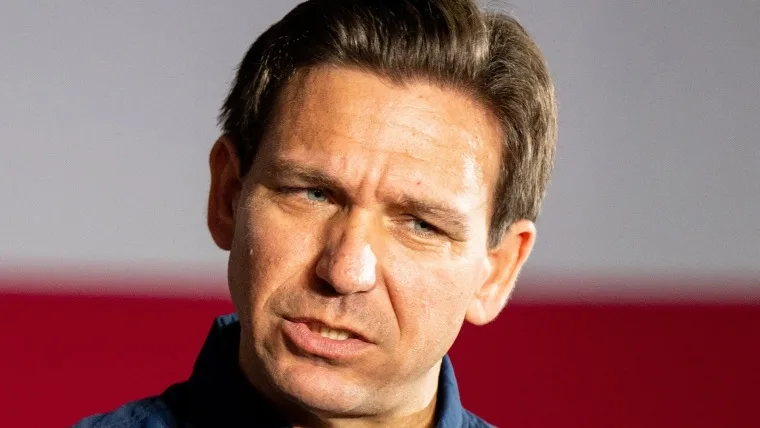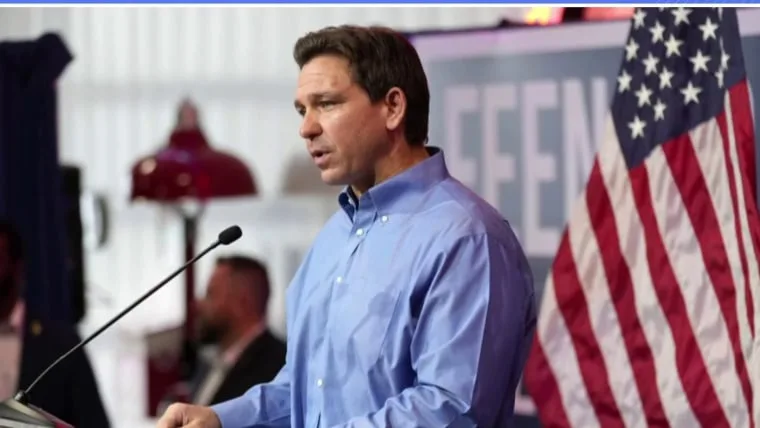The nonprofit media outlet PragerU, which despite its name is not a university but a conservative advocacy group, announced this week that Florida has approved it as an education vendor.
While we must at least allow for the possibility that any curriculum it produces for Florida will be noncontroversial and factually accurate, PragerU’s stated mission of offering “a free alternative to the dominant left-wing ideology in culture, media, and education” and the recent release of Florida’s problematic African American history standards give us reason to be skeptical.
Such language suggests PragerU intends for the content to be controversial.
“This means that if you are a teacher in Florida, you cannot be fired for using PragerU content,” CEO Marissa Streit said in a video announcing the company’s apparent arrangement with the state. Such language suggests PragerU intends for the content to be controversial.
Its past videos certainly are.
In a 2018 video — “What Is Intersectionality?” — conservative commentator Ben Shapiro describes the theory as “a form of identity politics in which the value of your opinion depends on how many victim groups you belong to. At the bottom of the totem pole is the person everybody loves to hate — the straight, white male” and “The more memberships you can claim in “oppressed” groups, the more aggrieved you are, and the higher you rank.”
His description of intersectionality does not line up with intersectional literature, which says that because people occupy multiple identities simultaneously, they can experience multiple forms of discrimination and that there is no hierarchy of oppression. Would Florida officials allow a video that clearly misrepresents intersectionality to be shown to students? They shouldn’t, but that doesn’t mean that they wouldn’t.
In another PragerU video from 2017, Taleeb Starkes lists “The Top 5 Issues Facing Black Americans.” From the video: “Problem number five: the victim mentality. Nothing holds someone back more than seeing himself as a victim. Why? Because a victim is not responsible for his situation. Everything is someone else’s fault. And the victim sees little chance of improving his life. How can he get ahead if someone is holding him back? All this makes the victim unhappy, frustrated and angry. This is how too many Blacks see themselves — as victims. So much so that their victim status becomes their primary identity and their ruling ideology. I call it victimology. Unfortunately, many Black churches preach this “victimology,” many Black parents pass it on to their children, inner-city schools teach it to their students and the Black media reinforce it. Meanwhile, the NAACP and other Black grievance groups fundraise on it.”
The above fits with the racial conservative framework of dismissing any recognition of racism and its impacts as “victimhood mentality” and totalizes Black culture as either producing victims or victors. (Racial conservatism being a racially diverse variant of social conservatism that opposes federal efforts to remedy the legacy of historical racial discrimination.) It also fits nicely with Florida’s problematic new African American history standards. The guidance that Black people benefited from slavery and can at least be partially blamed for white mobs massacring them got most of the attention, but those aren’t the only things that raised my eyebrows.
Consider that Florida now lists Thomas Sowell as a political figure who shaped the modern civil rights effort alongside Mary McLeod Bethune, who founded a Black college, and John Lewis, a Freedom Rider and civil rights leader who went on to serve in Congress. Sowell is a racial conservative who is not, has never claimed to be, or has ever been considered to be, a political figure who shaped modern civil rights efforts.
Sowell, who’s had a prolific career as a scholar of economics, is famous for his intense, repetitious and often historically suspect criticisms of Black culture, most specifically for decrying victimhood mentality in the Black community.
Thomas Sowell is a racial conservative who is not, has never claimed to be or has ever been considered to be a political figure who shaped modern civil rights efforts.
Now that PragerU has said it’s a vendor of curriculum for Florida, does that mean this video listing the “Top 5 Issues Facing Black Americans” would be shown in an American history or civics class? Would it be shown in a predominantly white school with few Black students? Would it be shown in an all-Black school?
In curriculum studies, we often discuss the “hidden curriculum,” that is, is the lessons implied by a school’s curriculum and policies. Much of what we learn about the world and our place in it is taught through the hidden curriculum. Say, the implied lesson that follows disciplining Black girls for wearing their hair in natural styles, but not for straightened hair, is that their natural hair is unprofessional or unbecoming. In the event that Florida allows videos such as “What Is Intersectionality?” or “The Top 5 Issues Facing Black Americans,” and the stripped-down version for PragerU Kids called “How to be a victor and not a victim” to be shown in schools, we must ask some hard questions:
What is the impact of a hidden curriculum that teaches Black children that calling out racism and other ill-treatment they may be subjected to means they’re embracing victimhood?
The feeling that they should suffer in silence.
There’s no evidence that Florida has yet purchased any curriculum from PragerU, but given the state’s history and PragerU’s history, we have reason to be alarmed. The African American history standards the state’s embracing are appalling, and Florida would need a problematic curriculum vendor to carry out its plan.




